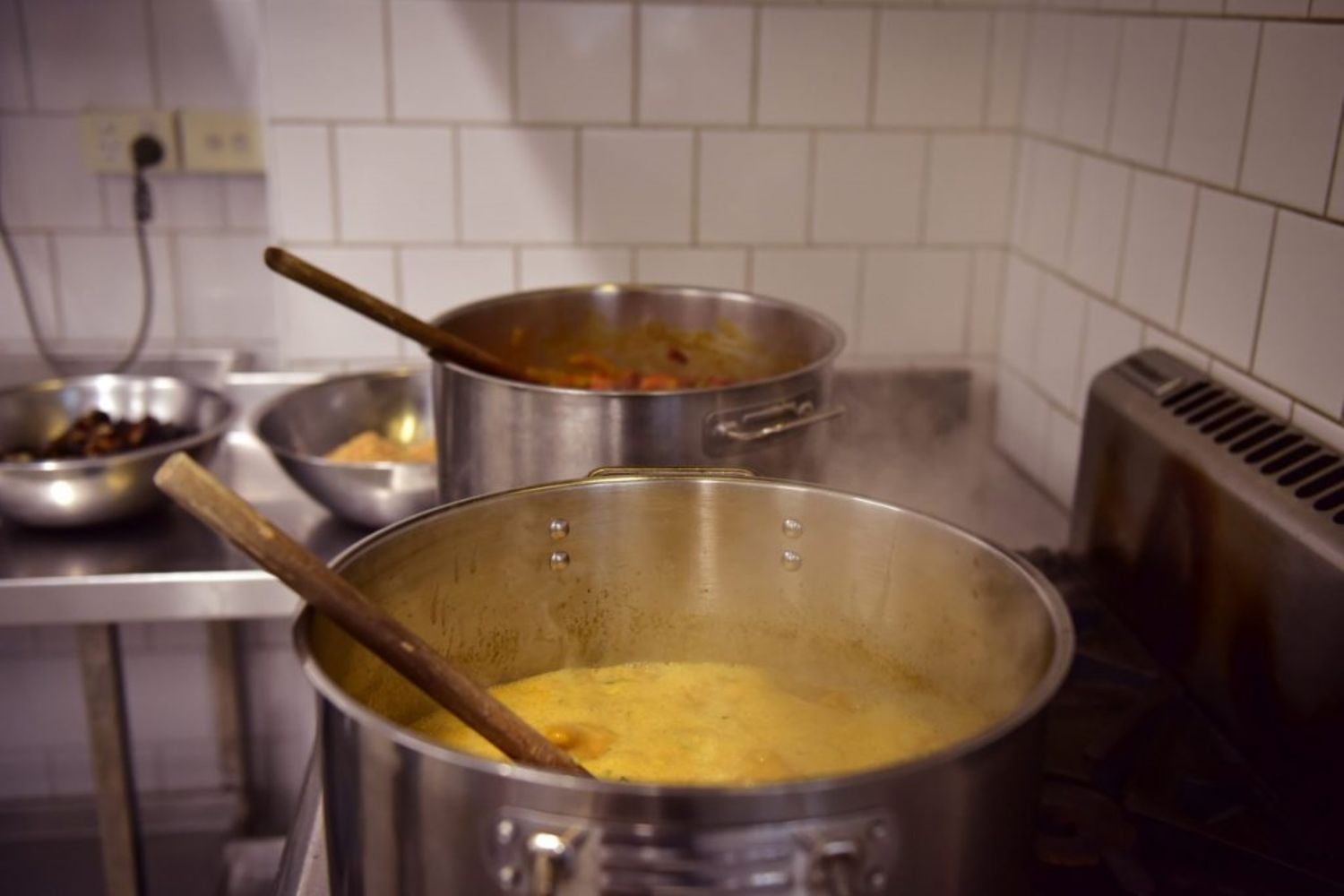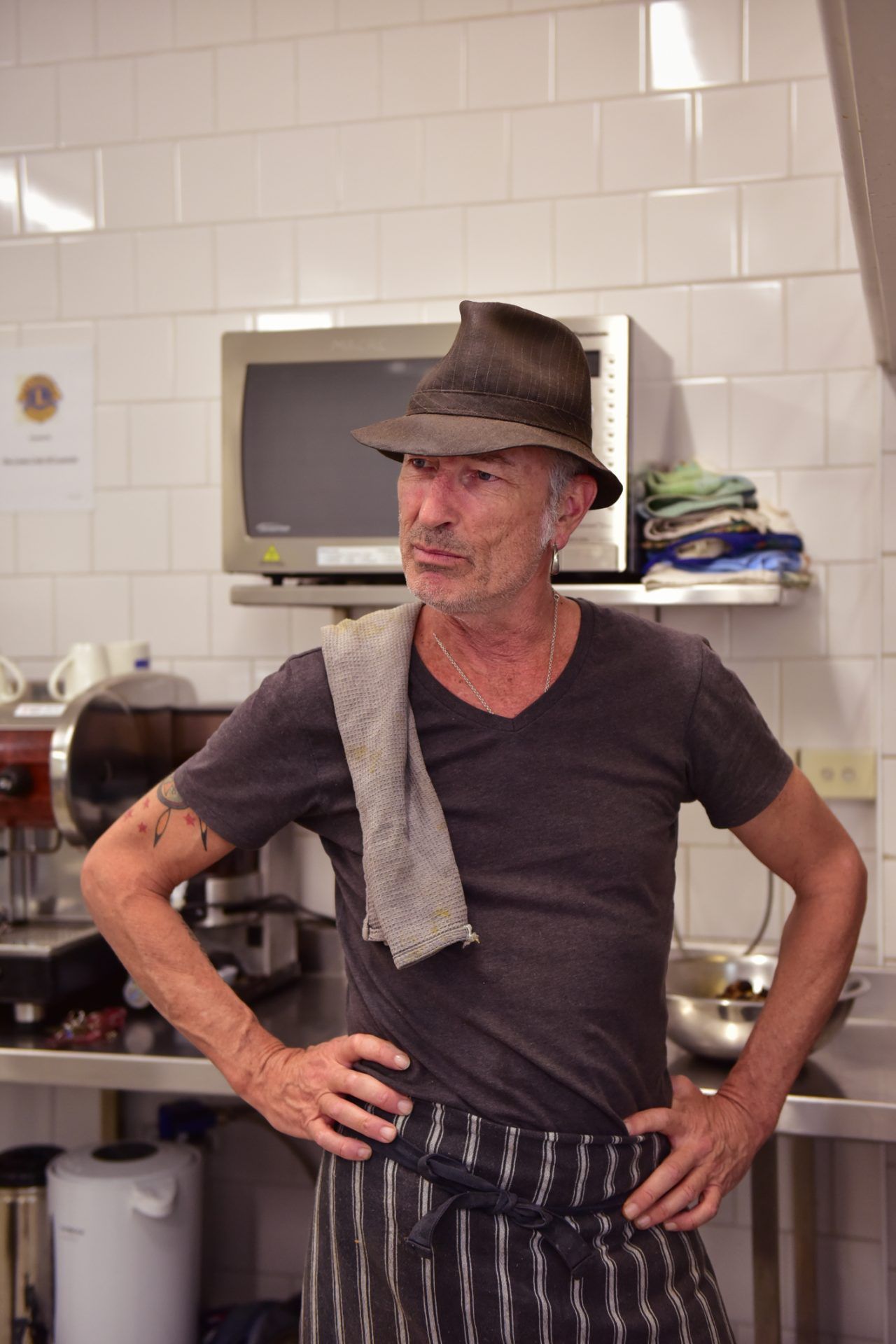Every Monday and Wednesday Dave pulls out his 23 litre pots – up to six of them – and cooks a vegan feast for any and all comers. Locals drop by because they love his food. A few of those who look to extra community support and companionship make a meal of the social contact and the curries. And then there are the backpackers. Internationals from Europe, the Americas and Asia who come to the Margaret River Region to experience wild, remote Australia. The kind of Australia that fills movie screens with vertiginous cliffs, bush and ocean horizons.
In exchange for memories, the backpackers largely work the vineyards. In the late summer this means picking. In the winter, pruning. The hours are long and the positions are seasonal. The soup kitchen has always been a place to congregate and get a cheap, good meal. But Dave Seegar never saw himself in the position in which he now exists – as some of the only means these backpackers currently have for support.
Before the Covid-19 outbreak, Dave Seegar and his crew of up to 15 local helpers would serve around 250 meals on each of the soup’s two nights. He’s now down to 40. From six cooking pots, to two. Fifteen helpers to just four; social distancing means there must be fewer people in the kitchen, but also, well, there just isn’t the volume of food required. But those that are coming? Backpackers.
“The people coming down are largely backpackers and they’re needy because they’re not getting any government support, which isn’t really in the Australian spirit of things,” Dave says, adding those backpackers that do remain are largely stuck either due to the dearth of international flights, or the cost of returning home.
So why hang in there, if the need for the soup kitchen has quartered and the risk of being around the public has been so clearly stated by official bodies?
“Because I feel that this is the time when we would be most needed, really,” Dave reflects.
“We’re keeping the freezer full of food so that if there are further lock downs, then we will have more food to offer. The soup kitchen has been designated as an essential service by the Shire.”
Dave’s approach is like most in the local food industry. He’s prosaic and practical. The work is what he does and the reasons he does it have nothing to do with external recognition or financial gain. In a normalised social climate, Dave drives school buses by day, plays a little music by night, and makes sure the pots in the community kitchen are bubbling in term for first bowls every Monday and Wednesday night, just as he’s been doing every week for the past 25 years.
Right now he’s missing the pub – “it’s not about excessive drinking, it’s just about getting to five o’clock and having a beer” – and the soup kitchen’s normal bustle: dine-in is no longer an option and all food is packaged for take-away. Raw foods like salads are no longer part of the provision.
But the hat’s tipped at a jaunty angle. The pots smell great. And the freezer’s stocked, just in case.
“Life goes on,” shrugs Dave, stirring his pots.
And he’s right, it does. But only because we have people in the community working the food and social front line. Just like Dave.



